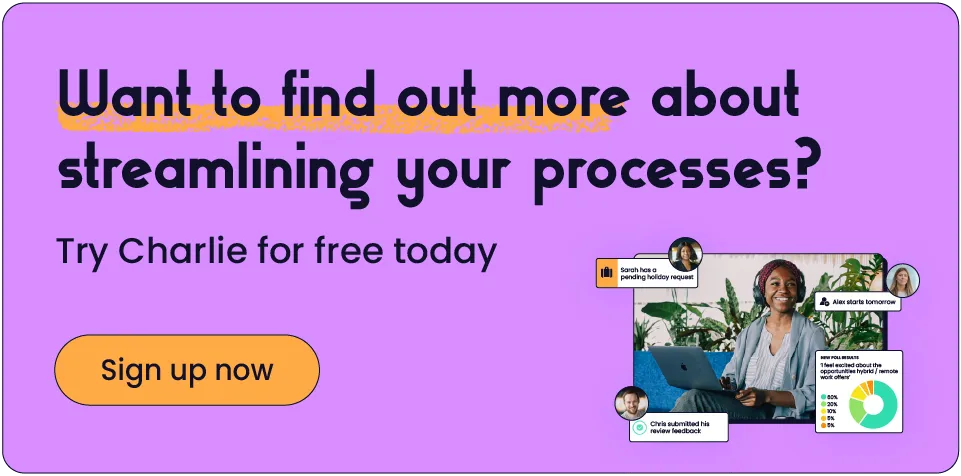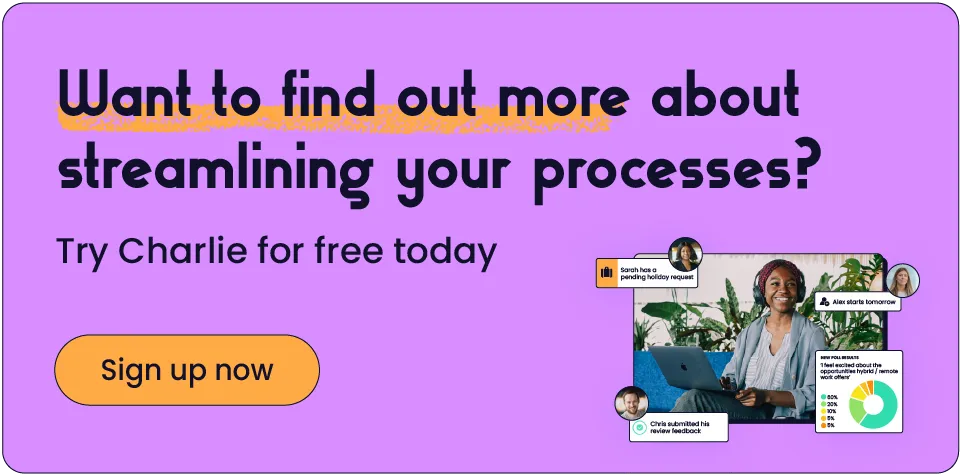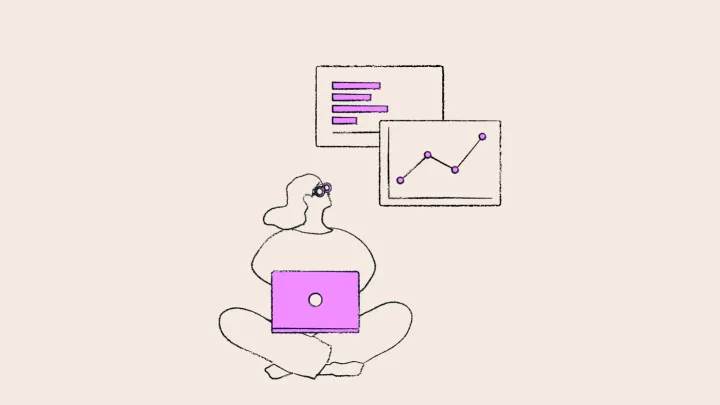What is employee attrition? (And how to calculate employee attrition rate)

In this blog, we look at the importance of addressing employee attrition. Because retaining talented employees is how you’ll achieve organisational success for your small business.
If left unchecked, employee attrition can result in:
Talent loss - losing valuable employees can impact productivity, team dynamics, and your overall company performance.
Significant costs - there are high costs associated with employee turnover, including recruitment, training, and loss of productivity.
To help you out, we’ll explore employee retention strategies (check out how to calculate employee retention rate here for more info). These are key to reducing attrition, retaining your best employees, and creating a stable and motivated team.
Let’s get started by defining employee attrition…
What is employee attrition?
There are several (somewhat contradictory) different employee attrition meanings out there, especially online. But in short:
Employee attrition is when someone leaves a company either voluntarily or involuntarily and is not immediately replaced.
Reasons for attrition include resignation, retirement, redundancy, restructuring, long-term illness and termination of employment.
In business, some attrition is very much inevitable. Even the most committed, long-serving employee will have to retire one day!
What’s the difference between attrition and turnover?
There are two main differences between attrition and turnover rate:
1. Attrition encompasses all employee departures, whether voluntary like a resignation, or involuntary like termination. Turnover in contrast only refers to voluntary employee departures - i.e. when someone has chosen to leave their role and the company.
2. In instances of attrition, the departing employee's role will probably not be filled for a while (and in some cases, never.) But an employer is likely to want to fill the role ASAP when it's turnover.
What causes employee attrition?
Many factors can lead to employee attrition, such as a lack of engagement, poor work-life balance, inadequate recognition, and limited growth opportunities.
Today’s employees want more from where they work. It’s not just about salary or flexibility — it’s about everything you are, represent, and offer as a company.
Understanding the causes of employee attrition is important, but tackling them is even more vital (see below for how). As a small business, you want to keep voluntary attrition to a minimum. Because employee attrition always comes with a cost.
The cost of employee attrition
People are a company's biggest asset, so any employee’s departure is going to have repercussions - whether that's the work you lose because of them leaving, or how much it costs to replace them.
To calculate the employee attrition rate percentage at your business:
Average number of departures over a set period (divided by) the average number of employees (multiplied by) 100
As you can see, it’s fairly simple to calculate your attrition rate, but you should also take stock of the direct and indirect costs associated with any employee's departure. As well as the more obvious costs like recruiting for the vacated role, the exit of a popular team member could impact the rest of your team and affect their productivity levels.
How to tackle employee attrition
Although some employee attrition is normal and, as in cases of retirement, natural, as a small business you want to do all you can to tackle it. Because retaining good people will always be good for business.
You can tackle employee attrition through:
- Employee engagement programs - These are programmes you offer to your team to increase and nurture employee engagement metrics - i.e. anything that boosts connection and fosters feelings of contentment at and for your business.
- Career development opportunities - Encouraging and supporting your employees to develop more skills and progress through the ranks of your company.
- Competitive compensation and benefits - How you stand out from the competitive crowd and recruit the best people. And we’re not just talking about salary! (See below for what we offer our team at Charlie.)
- Effective leadership - Good leaders create great teams, so what can you do better?
- Open communication and feedback - Open communication and taking on feedback is a big part of effective leadership. Do you talk to your team and do they feel they can talk to you?
- Regular performance reviews - These are as important for small businesses as they are for big companies. And they need to be regular to matter.
- Employee surveys - Essential avenues for employee feedback and communication. You’ll get so much more back from your team if you give them a way of giving regular, candid and anonymous feedback.
So that’s the theory, but what about putting it into practice?
At Charlie, we’ve created ways of working to support our team to do great work and have healthy and fulfilling lives. So to help you out, here are some of the ways we tackle employee attrition:
Career development opportunities at Charlie
- We have a transparent system, where all our employees have full oversight on how their careers are progressing.
Competitive compensation and benefits at Charlie
In addition to paying our team competitive salaries, at Charlie we offer many different benefits:
- Flexible working hours - our employees have full ownership over how and when they get their work done.
- 9-day fortnights - we offer a different kind of work week. Our whole team gets every second Friday off.
- ‘Work Your Way’ - our team members get £750 every year for learning and development, flexible working needs, and travel and accommodation for our in-person meet-ups.
- Enhanced equal parental leave - all new parents at Charlie get ten weeks fully paid leave (and ten weeks paid at 50% of their salary).
- Support for mental and physical wellbeing - we offer bookable ‘Personal Days’, and give everyone in our team access to Mental Health through Vitality and a £30 monthly wellbeing budget.
- Nomad working - every Charlie employee has access to an annual £300 budget to help them make the most of nomad working opportunities.
Regular performance reviews at Charlie
- We use our own HR software for our team! Because performance reviews are quick to set up and easy to launch in Charlie.
With our simple review-builder, creating and launching a performance review takes seconds (and from there, you can easily roll out recurring reviews). Charlie comes with built-in templates as well, so it takes away all the faff. There are templates for all the standard reviews (probation, exit interviews etc.), so you don’t even have to think about what to ask.
Employee surveys at Charlie
Again, we use Charlie’s HR software to generate feedback from our own team. Regularly surveying our employees helps us to better understand their needs, and keeps us improving as a company.
Charlie comes with a library of expert-backed survey templates and you can also create your own custom polls. And with ‘one touch response’, it’s quick and easy for our people (and yours if you use Charlie!) to complete the poll and submit their feedback.
Check out our guide on HR KPI to understand how this fits into your overall business strategy.




